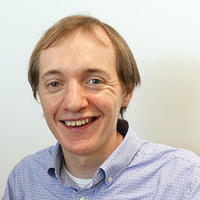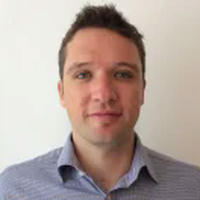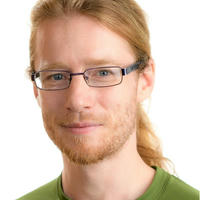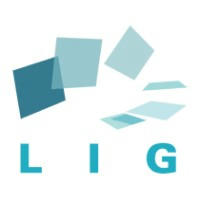Welcome
Welcome to the first workshop on Virtual Machine Performance and Security!
This workshop will take place on 24-26 June 2025 in the beautiful city of Grenoble, at the foot of the French Alps.

Foreword
As virtualization technology continues to evolve, their performance and security remain critical. This workshop aims to bring together researchers, practitioners, and industry experts to discuss the latest advancements, challenges, and solutions related to the performance and security of virtual machines (VMs). We invite original contributions that address theoretical, experimental, and practical aspects of VM performance and security.
Format
The goal of the workshop is to foster collaboration and discussion to encourage and advance innovative research related to the performance and security of virtual machines.
The workshop will last two days. The program will include keynotes, a two minutes madness session, and free discussions.
Topics of interests
We welcome research works on a wide range of topics, including but not limited to:
- Performance optimization techniques for virtual machines
- Security vulnerabilities and threats in virtualized environments
- Isolation mechanisms and their impact on performance
- Confidential Virtual Machines and Trusted Execution
- Resource management and allocation strategies for VMs
- Security frameworks and architectures for virtual machines
- Case studies and real-world applications of VM performance and security
- Emerging trends in virtualization technologies (e.g., containers, serverless computing)
- Tools and frameworks for monitoring and enhancing VM performance and security
- Emerging technologies such as virtualisation support for heterogeneous architectures or CXL
- Disaggregated memory
Schedule
Tuesday 24 June
Room 306
| Time | Event |
|---|---|
| 10:00 - 10:30 | Opening |
| 10:30 - 11:30 | Keynote 1 |
| 11:30 - 12:00 | Break |
| 12:00 - 13:00 | Keynote 2 |
| 13:00 - 14:30 | Lunch |
| 14:30 - 17:30 | Two Minutes madness |
| 18:00 - 20:00 | Dinner |
Wednesday 25 June
Room 406
| Time | Event |
|---|---|
| 10:00 - 11:00 | Keynote 3 |
| 11:00 - 11:30 | Break |
| 11:30 - 12:30 | Keynote 4 |
| 12:30 - 13:00 | Closing |
| 13:00 - 14:30 | Lunch |
| 14:30 - 17:30 | Free discussions |
Keynotes
Keynote 1: Tuesday 24 June, 10:30~11:30
Title: Serverless Confidential Containers
Speaker: Dr Pierre-Louis Aublin, IIJ Research Laboratory, Japan
Abstract: There is an increasing need for security and privacy in Cloud Computing across various industries: finance, healthcare, etc. One promising technology to address this problem is Confidential Virtual Machines (CVMs), a set of CPU extensions available on recent Intel, AMD or ARM processors, that encrypts an entire virtual machine even in the presence of a malicious host OS or hypervisor. Unfortunately, CVMs are difficult to securely deploy due to their trust assumptions and incur a non-negligible performance overhead.
Keynote 2: Tuesday 24 June, 12:00~13:00
Title: Challenges of Live Migration in KVM on Same ISA Heterogeneous Processors
Speaker: Dr Kenta Ishiguro, LIG, postdoc in the KrakOS team
Abstract: Live migration of virtual machines (VMs) is essential in cloud environments, serving various purposes, including server maintenance and load balancing. As many data centers adopt Same ISA Heterogeneous (SIH) processors, such as different generations from the same chip vendor and product lines (e.g., Intel x86 Xeon), the implications of these processor heterogeneity on VM migration remain unclear. This presentation will describe the challenges associated with VM migration across SIH processors, explore the internal mechanisms to manage this migration in KVM-based virtualization, and discuss the impact of a bug we uncovered.
Keynote 3: Wednesday 25 June, 10:00~11:00
Title: Carbon Footprint of Storage in Data Centers: The Impact of using SSDs for Key-Value Stores
Speaker: Dr Thomas Ropars, Grenoble University
Abstract: The greenhouse gas emissions of data centers and the question of how to reduce them are a broad problem that has come into focus with the ongoing climate crisis. Yet, the emissions of storage infrastructures specifically are not well understood. Recent work shows that the manufacturing emissions of SSDs are significantly higher than those of HDDs. Also, the energy consumption of high-end SSDs is in general higher than the one of HDDs. This raises the question of whether the performance improvements provided by SSDs over HDDs are enough to also provide an advantage in terms of carbon footprint. In this paper, we analyze the lifecycle carbon footprint of SSDs and HDDs when used as storage devices for Key-Value stores. Considering state-of-the-art Key-Value stores specifically designed to make best use of HDDs or SSDs, we use specialized hardware to measure the power consumption of NVMe SSDs, as well as of the processor and memory to analyze the impact of different Key-Value stores and workloads on power. We conduct an analysis to determine if SSD-based systems outperform HDD-based systems with respect to their carbon footprint. Our results show that in most cases, the high operational energy efficiency of SSDs allow systems based on SSDs to have lower carbon footprint. However, HDD-based solutions should be considered in cases where the full potential of SSDs cannot be exploited and when the carbon intensity of the electricity powering the data center is low.
Keynote 4: Wednesday 25 June, 11:30~12:30
Title: Mangosteen: Fast Transparent Durability for Linearizable Applications using NVM
Speaker: Dr Daniel O’Keeffe, Royal Holloway University, UK
Abstract: The advent of byte-addressable non-volatile memory (NVM) technologies has enabled the development of low-latency high-throughput durable applications, i.e., applications that are capable of recovering from full-system crashes. However, programming such applications is error-prone as efficiency gains often require fine-grained (programmer-controlled) management of low-level persistence instructions. We propose Mangosteen, a high-level programming frame- work that allows developers to transform an existing lineariz- able in-memory application to a corresponding durably lin- earizable version using NVM. Our framework’s API consists of a set of callback hooks that interpose on an application’s request processing flow with minimal developer effort. Man- gosteen executes client operations on DRAM and persists their effects using binary instrumentation and redo logging. Mangosteen’s concurrency control facilitates batching of read- write requests to minimize the cost of persistence, while al- lowing read-only requests to execute concurrently. A novel intra-batch deduplication mechanism further reduces persis- tence overheads for common OLTP workloads. Our empirical evaluation results show that Mangosteen-enabled applications outperform state-of-the-art solutions across the entire spec- trum of read-write ratios. In particular, the Mangosteen-based version of Redis demonstrates throughput gains of between 2×–5× in comparison to prior work.
Two Minutes Madness
Each PhD student attending the workshop will be given the opportunity to present his research work in no more than 2 minutes.
Optionally, a single slide can be prepared in advance and displayed during the session.
A jury will decide on the best presentation and will award the winner a stainless mug cup from IIJ.
Venue
The workshop will take place at the IMAG Building, 150 Pl. du Torrent, 38400 Saint-Martin-d'Hères, France
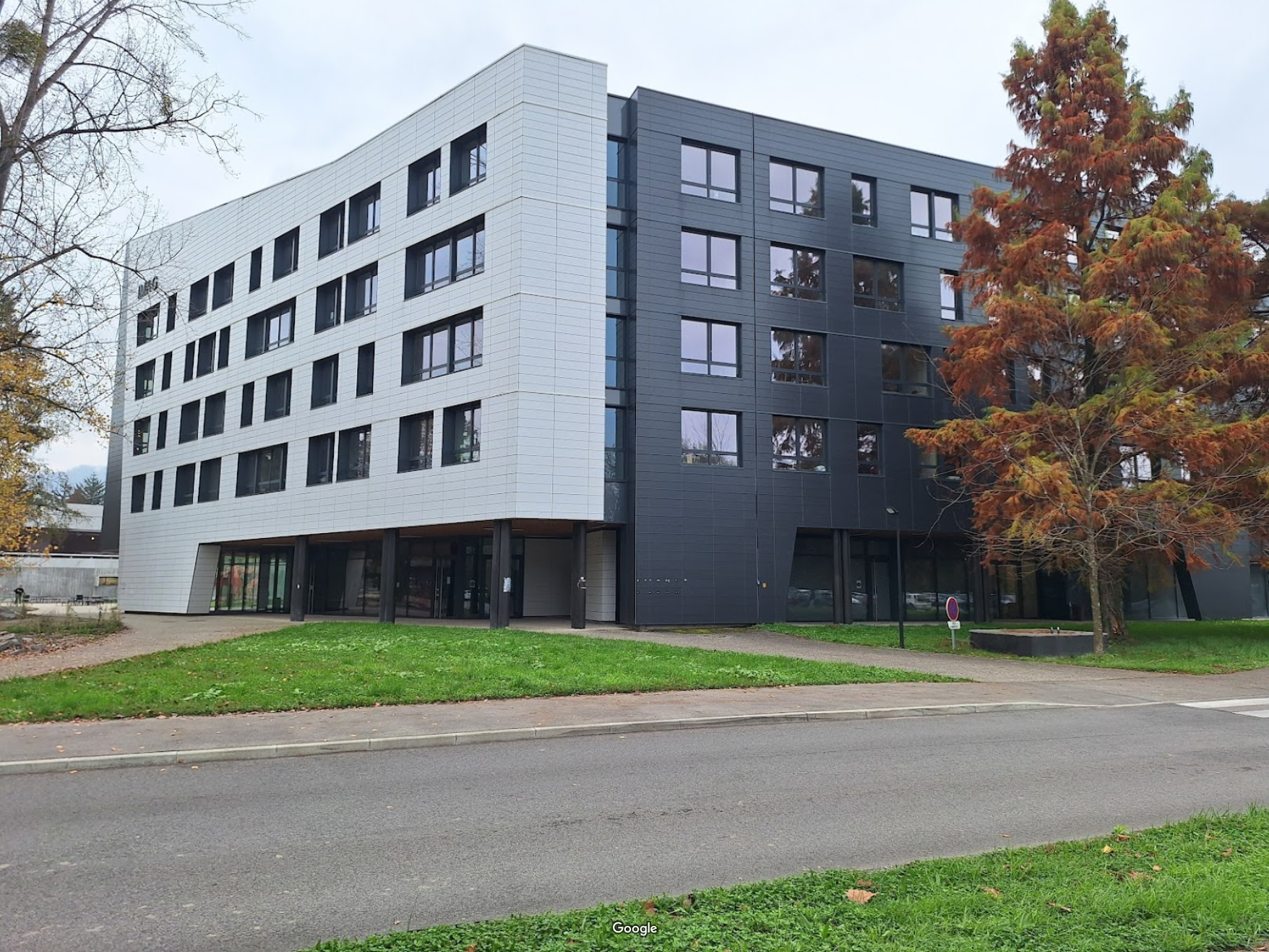
Access
The easiest way to come, from Grenoble train station, is to take the tramway line B (stop "Gares") towards "Gières Gares" and stop at either "Gabriel Fauré" or "Bibliothèques Universitaires".

You can find more information on the transport agency website.
Recommendations
Hotels
We recommend to book a hotel near the train station.
Restaurants
Our recommendations are:
- La ferme à Dédé: raclette, fondue, etc.;
- Batman kebab, one of the first kebab in France;
- the many pizzerias all around the city.
Leisure
Grenoble hosts several museums (art, history, nature) and parks (Bastille, Paul Mistral). Mountains are very close to the city, so you can also quickly go hiking.
Please visit the tourism office website for more information.
